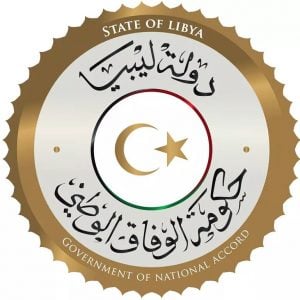By Sami Zaptia.

London, 14 February 2019:
Mohamed El-Sallak, the Official Spokesperson for Faiez Sarraj, the head of Libya’s Presidency Council and Government of National Accord (PC/GNA), reported yesterday that a site with a number of Al- Qaeda members near Ubari was struck by joint U.S.-Libyan forces.
El-Sallak added that “This joint work between the Presidency Council of the Government of National Accord and the US Government coincided with the meeting of US Secretary of State Mike Pompeo and Foreign Minister Mohamed Saiala at the Global Coalition to Defeat Islamic State meeting last week”.
At the time of publication the U.S. Africa Command, AFRICOM, had made no comment about the alleged joint raid.
It is unusual for the Serraj PC/GNA to jump the gun and make an announcement or confirm an AFRICOM anti terror airstrike or raid within Libya – before AFRICOM.
It is not clear why they have chosen to do so on this occasion. Was it because it was really a joint raid and Serraj wanted to share the credit for the operation?
Or was it simply something to do with Khalifa Hafter and his recent LNA activity in the area?
Hafter’s LNA General Command have not been shy in pressing home their victories – real or perceived – in the south.
Yesterday, in a naked display at the Taminhent Airbase, they engaged in some strong public relations and power projection to drive home their political advantage following their military success.
The Serraj PC may have decided to counter this recent Hafter LNA headline grabbing in the south of Libya.
Following the LNA’s claim to have “liberated” the Sharara oilfield, purged the south (and Derna) of terrorists, Serraj may have felt its time to remind the domestic and international audience of who is really in charge.
In view of the alleged and widely perceived cooperation between Hafter and France in general, and in connection with France’s recent airstrikes in the south, Serraj may have wanted to remind everyone that it is his political executive (as prescribed by the 2015 Skhirat Libyan Political Agreement ) that is exclusively recognized by the international community.
Serraj may have wanted to drive home the point that it his administration that is backed by, and works in close military cooperation with, the United States – and not Hafter.
Serraj may have also wanted to remind everyone that he is also, on paper anyway, still the de jure Supreme Commander of the (Tripoli-based?) Libyan Army.
But it could have also been a case of pointing out that Serraj and his PC are also fighting and countering terrorism and defending Libya’s security on the ground through jointly coordinated airstrikes with the U.S’s AFRICOM.
Equally, the raid took place near Ubari which is between the Sharara oilfield and the Taminhent Airbase used by Hafter’s LNA as its command and control operations room.
Serraj may have wanted to underscore that Hafter does not have total control of the area and nor has he totally eradicated terrorists in the south.
Serraj may have also wanted to show that Hafter does not and cannot impose a real “no-fly zone” in the south.
The battle for legitimacy and the hearts and minds of Libyans continues between Hafter on the one side and the internationally recognized administration of the Serraj-led PC/GNA.






